Episode 6: Surf and Turf

Lovely early fall weather means we’re spending our whole hour-long episode outside. All these sunny days, though, mean a shortage of water for crops, gardens, livestock, and lawns. Climate scientists warn that droughts interspersed with periods of heavy storms are becoming the new normal in New England. We look into how farmers and the rest of us are adapting.
We also consider what “national monument status” means. President Barack Obama just granted the status to nearly 90,000 acres of the north woods of Maine, and is considering doing the same for miles of ocean canyons and mountains off the coast of Cape Cod. And: it’s back to school time, but that means something different for the children of seasonal workers, bringing in the late summer crops.
Our Dry New England Summer
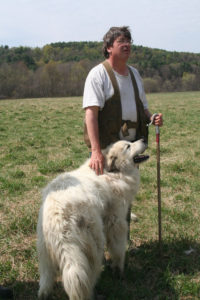
Livestock farmer Bill Fosher with sheepdog Zues. (Courtesy Bill Fosher)
It was an unusually dry summer for much of New England. Massachusetts was (and still is) the hardest-hit. This week, Governor Charlie Baker announced an emergency loan fund to help family farms and other small businesses affected by the drought.
New England Public Radio reporter Jill Kaufman has been reporting on the tentative move among New England farmers to adopt drought-friendly techniques. She joins us in the studio, and we call New Hampshire livestock farmer Bill Fosher to talk soil and water.
It’s not just farmers who have been affected by the long dry spell.
If you live in Massachusetts, your town may have told you to limit watering the lawns and garden. But as WBUR reporter Shannon Dooling found out, the rules may be different on the other side of the town line.
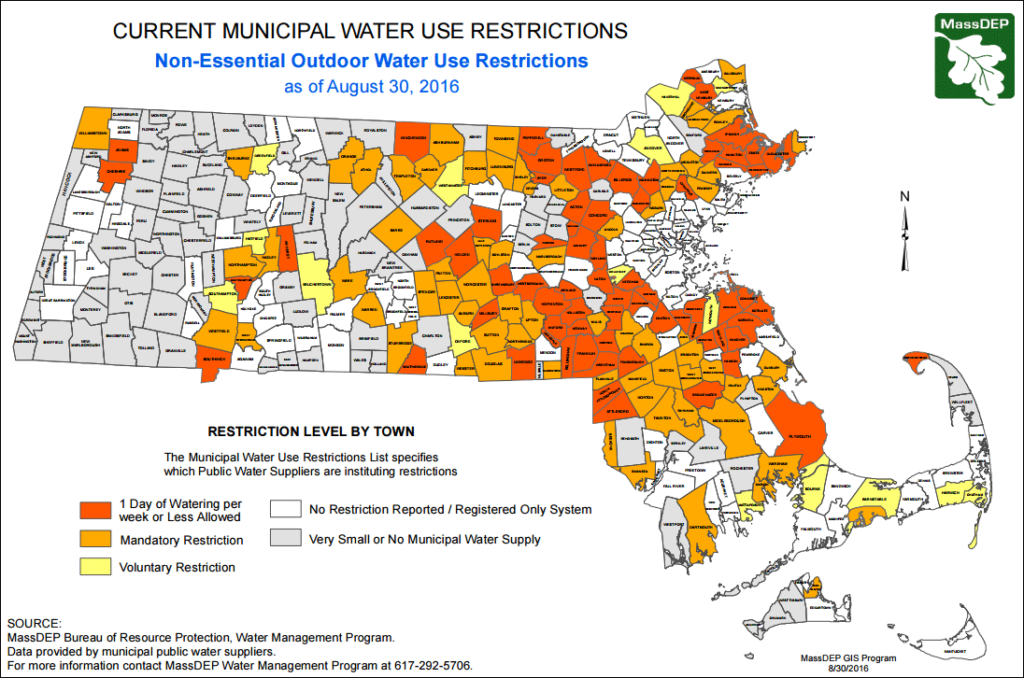
(Courtesy of the Massachusetts Department of Environmental Protection)
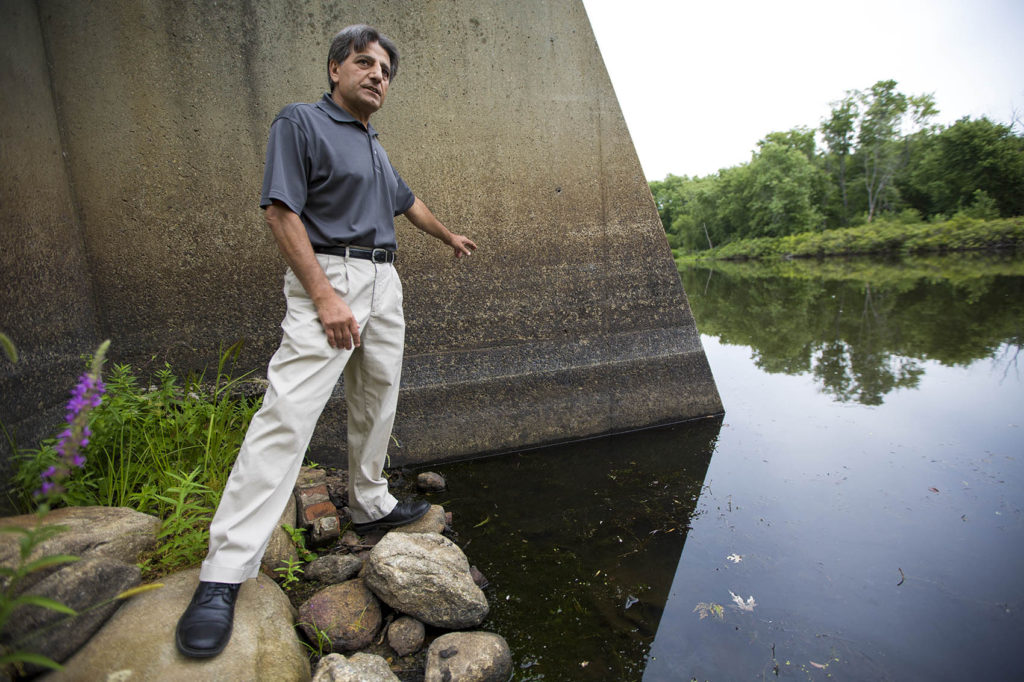
Director of the Billerica Public Works Abdul Alkhatib points out the level of the Concord River is three feet lower than it was this time last year in 2015 due to the current drought conditions this summer. (Jesse Costa/WBUR)
Monuments to Nature
If you’ve ever visited the North Maine Woods, you know that it’s one of the most wild places you’ll ever see. Nearly 90,000 acres adjacent to Baxter State Park have been designated by President Obama as the Katahdin Woods and Waters National Monument.
It’s not quite a national park, but it is protected recreational land. It was donated by Roxanne Quimby, the founder of personal care company Burt’s Bees. The donation was her family’s plan for some time.
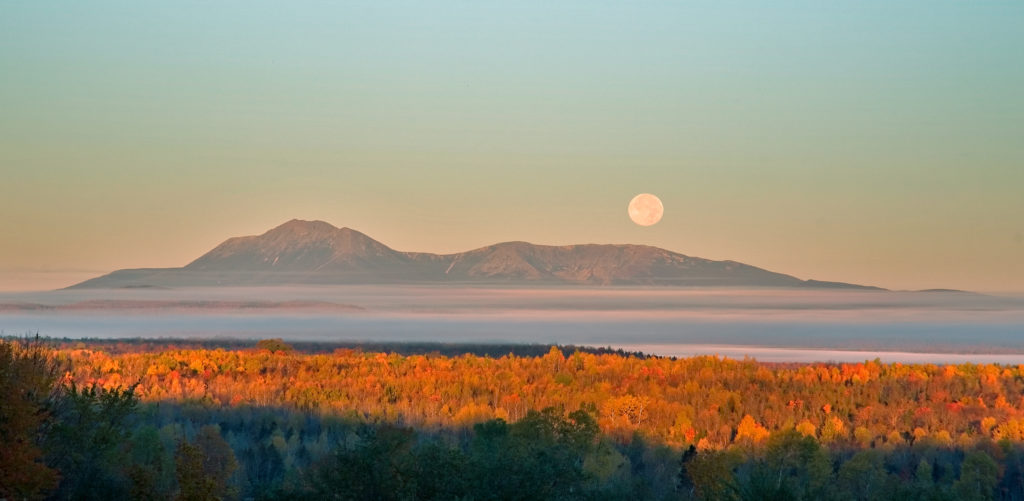
The moon rises over Mt. Katahdin. (Bill Duffy)
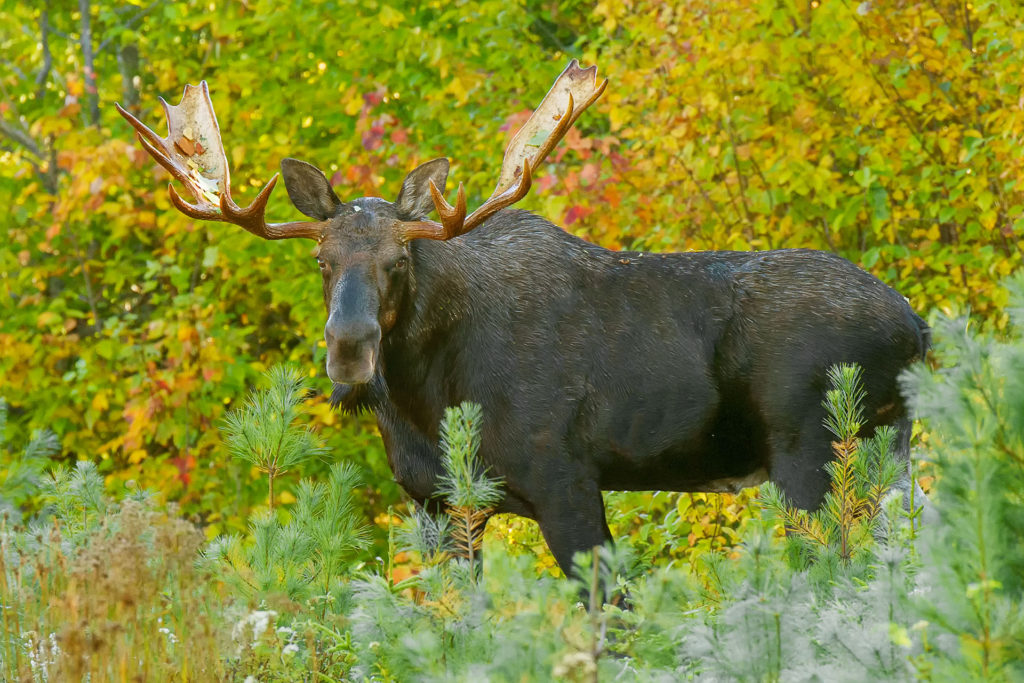
Bull moose in the area designated Katahdin Woods and Waters National Monument (Mark Picard)
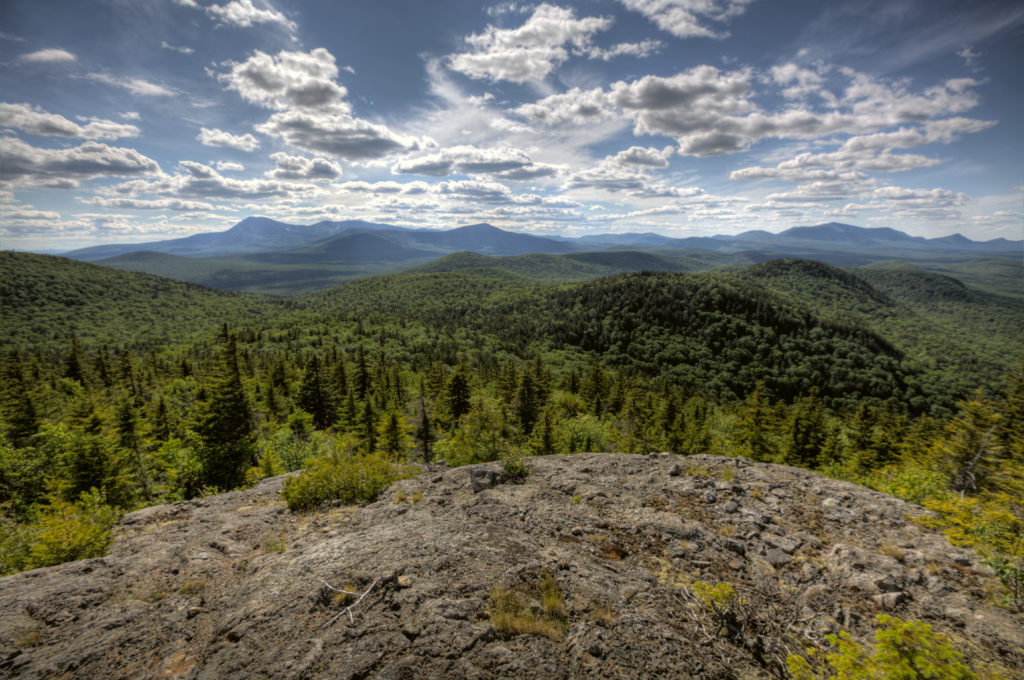
View from Lunksoos Mountain (Bill Duffy)
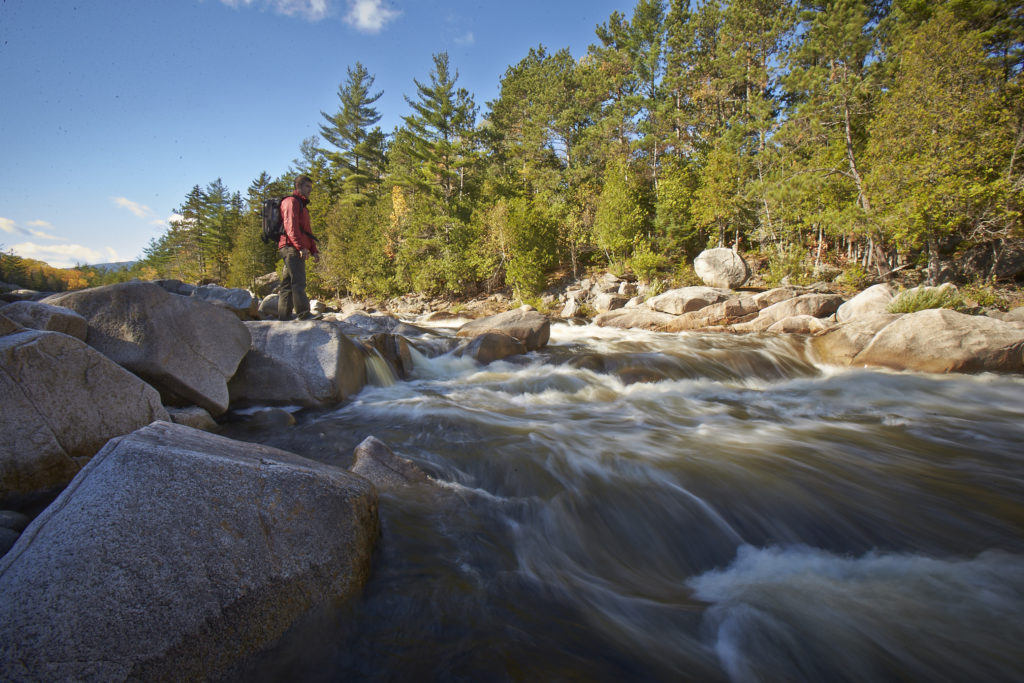
Wassataquoik River at Orion Falls (Credit: EPI)
The area also has logging and paper industry history. Many politicians have fought against the protected designation, hoping that some day paper mills would return. We speak with two Maine reporters covering the dispute: Maine Public Broadcasting’s Susan Sharon, and Nick Sambides, Jr. of the Bangor Daily News.
There’s an even more remote part of New England being considered as a national monument. The New England Coral Canyons and Seamounts area, about 150 miles from Cape Cod, is (according to a Congressional letter written to the President):
“a world of canyons that rivals the Grand Canyon in size and scale and underwater mountains that are higher than any east of the Rockies. These mountains – known as seamounts – rise as high as 7,700 feet from the ocean floor and are the only seamounts in the U.S. Atlantic Ocean.”
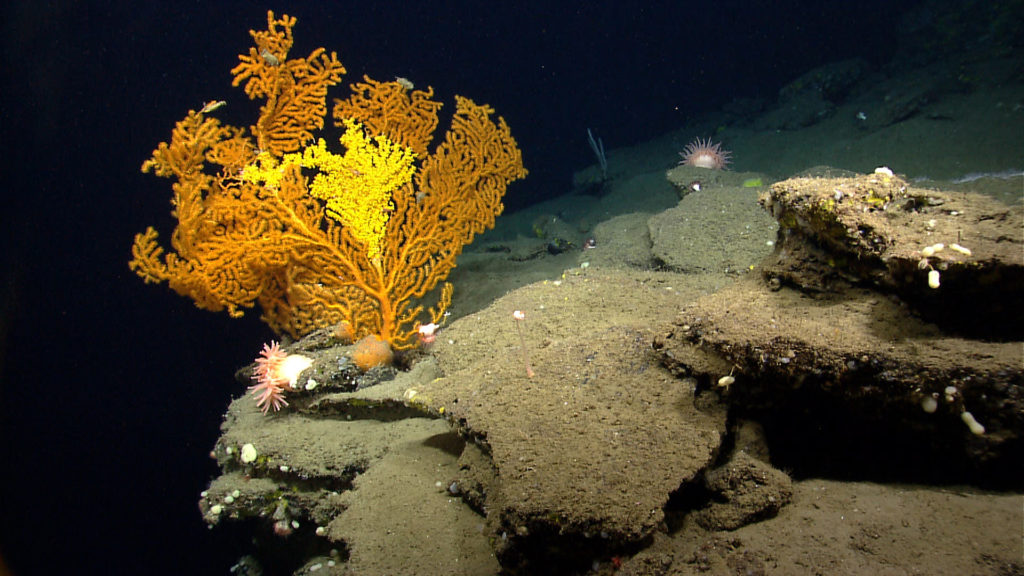
A Paramuricea coral in Nygren Canyon, which is 165 nautical miles southeast of Cape Cod, Massachusetts.

Hydromedusa in Washington Canyon.
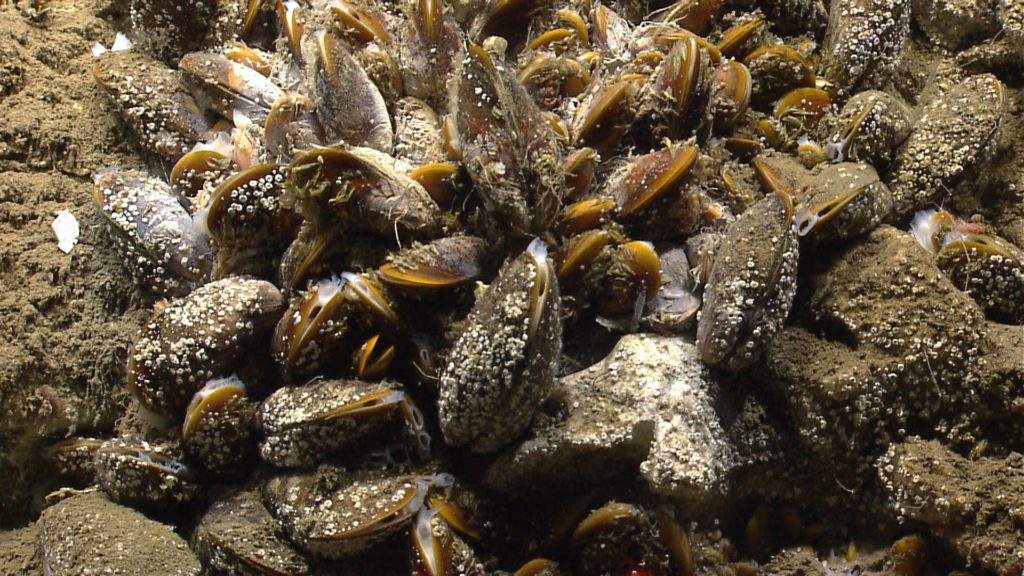
Mussels in Nygren Canyon.
Lawmakers, led by Connecticut Senator Richard Blumenthal, want the president to use the 1906 Antiquities Act to preserve the area. This is much like President George W. Bush did when he designated a similar monument in 2006 off the coast of Hawaii. President Obama just expanded that monument.
But like loggers in Maine, many in the commercial fishing industry are fighting the designation, questioning the use of the act by the president.
We speak with Brad Sewell, Director of Fisheries and Atlantic Ocean Program at the Natural Resources Defense Council, which is backing the proposal. We also hear from Bob Vanasse, executive director of the fisheries industry group Saving Seafood.
Maine’s Blueberry Harvest School
September means one thing for most kids in New England: an end to summer holidays and the start of classes. But for some, the school year isn’t that straightforward, because their parents chase the seasons from Texas to Maine, harvesting vegetables, picking apples, and raking blueberries.
The federally funded Migrant Education Program seeks to fill some of the gaps left by a life on the road. MPBN reporter Jennifer Mitchell spent a day with the Blueberry Harvest School in Downeast Maine.
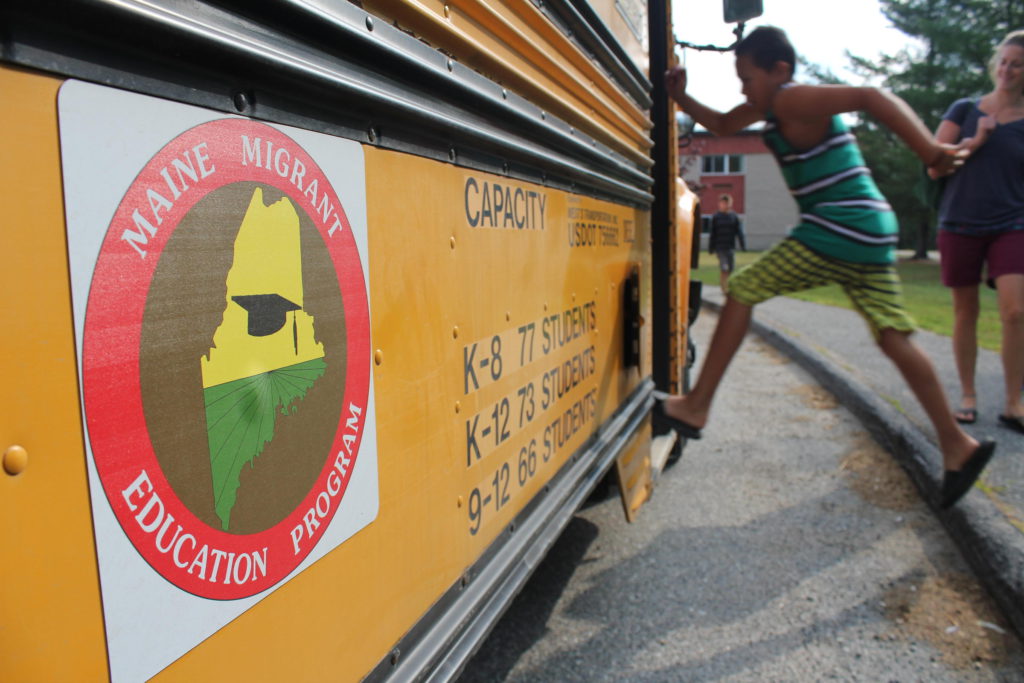
The Blueberry Harvest School was established to teach kids whose parents are busy bringing in Maine’s $75 million wild blueberry harvest. (Jennifer Mitchel/MPBN)
To learn more about parents of these kids — the blueberry harvest workers — we spoke with Jorge Acero, State Monitor Advocate for migrant farm workers in Maine.
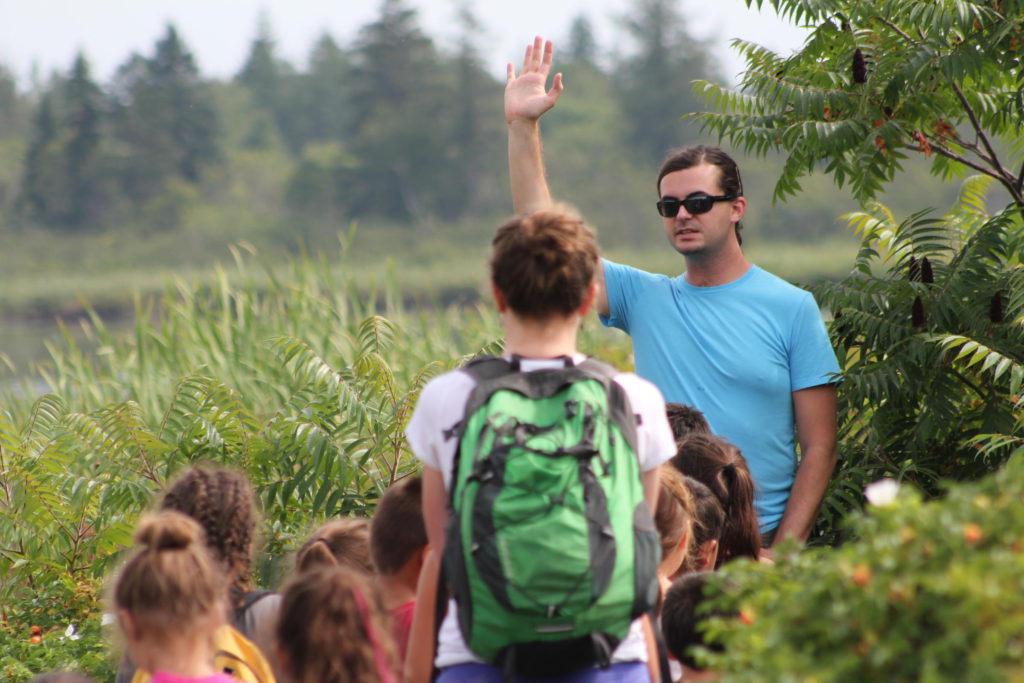
A teacher asks for volunteers during a class. (Jennifer Mitchel/MPBN)
About NEXT
NEXT is produced at WNPR.
Host: John Dankosky
Producer: Andrea Muraskin
Executive Producer: Catie Talarski
Digital Content Manager/Editor: Heather Brandon
Contributors to this episode: Jill Kaufman, Shannon Dooling, and Jennifer Mitchell
Music: Todd Merrell, Lightning on a Blue Sky by Twin Musicom, New England by Goodnight Blue Moon
We appreciate your feedback! Send praise, critique, suggestions, questions, story leads, and pictures of your corner of New England to next@wnpr.org.
